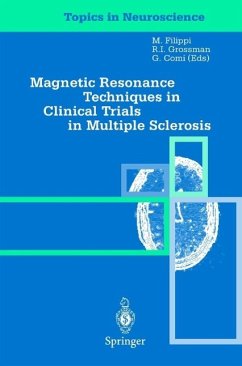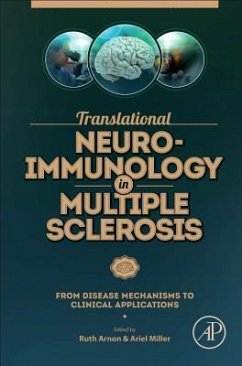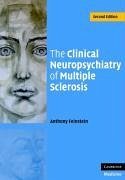
Clinical Assessment and Treatment of Multiple Sclerosis
Versandkostenfrei!
Versandfertig in über 4 Wochen
129,99 €
inkl. MwSt.

PAYBACK Punkte
65 °P sammeln!
Multiple Sclerosis (MS) is a form of demyelinating disease that affects the central nervous system (CNS). A patient with this disease can experience neurological symptoms such as autonomic, visual, motor and sensory problems. Some common symptoms associated with MS are ataxia, nystagmus, muscle spasms, problems with speech or swallowing, optic neuritis, pain and Uhthoff's phenomenon. The three prominent features of multiple sclerosis are formation of lesions in the CNS, inflammation, and the destruction of myelin sheaths of neurons and the blood-brain barrier (BBB). These characteristics coord...
Multiple Sclerosis (MS) is a form of demyelinating disease that affects the central nervous system (CNS). A patient with this disease can experience neurological symptoms such as autonomic, visual, motor and sensory problems. Some common symptoms associated with MS are ataxia, nystagmus, muscle spasms, problems with speech or swallowing, optic neuritis, pain and Uhthoff's phenomenon. The three prominent features of multiple sclerosis are formation of lesions in the CNS, inflammation, and the destruction of myelin sheaths of neurons and the blood-brain barrier (BBB). These characteristics coordinate in a complex manner to induce the breakdown of nerve tissues. The clinical assessment or diagnosis of multiple sclerosis is based on differential diagnosis, a method to rule out other conditions that might generate similar signs and symptoms. There are certain treatments available for managing multiple sclerosis which include medications that modify the progression of MS. These medications can be in the form of injectable medications, oral medications and infusion medications. This book contains some path-breaking studies related to the assessment and treatment of multiple sclerosis. It will serve as a reference to a broad spectrum of readers.












